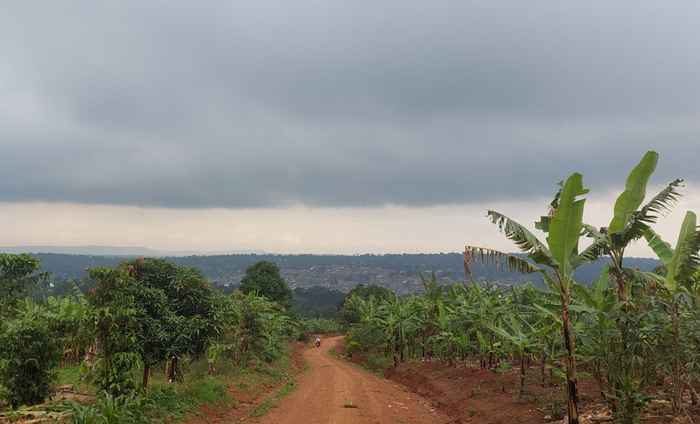'Learning to deal with big cultural differences is very valuable. I will remember this in my daily life and future career.'
Lin about her internship in Uganda
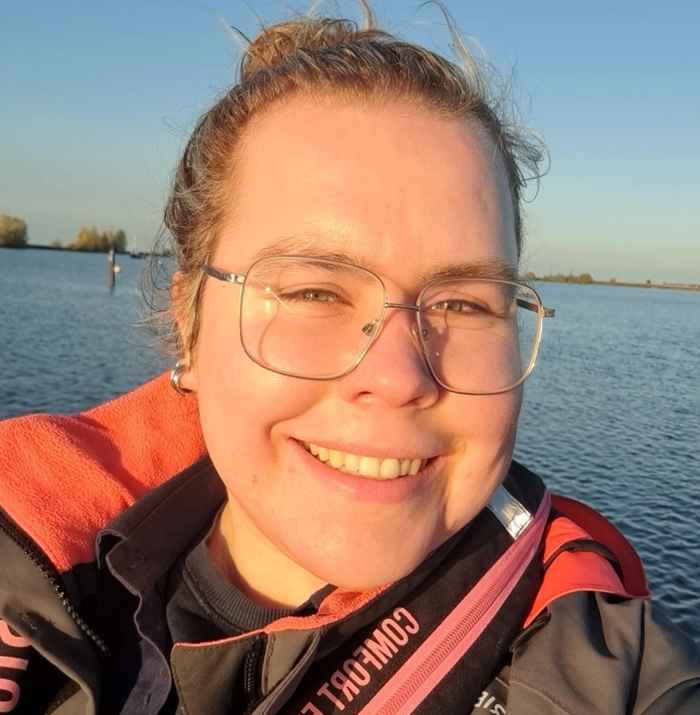
Field research
My research looked at how local people handle their waste. For six weeks, I interviewed people from the area. In total, I spoke to more than four hundred people, so keeping track of all the data was also an important part of my work. This was sometimes difficult, because there are no street names or house numbers, which made it hard to remember who we had already visited.
Because of the language barrier, an interpreter was always with me. This meant I didn’t speak directly with most people. So observing the surroundings became my main task. I looked at how hospitals, public roads, and homes dealt with their waste.
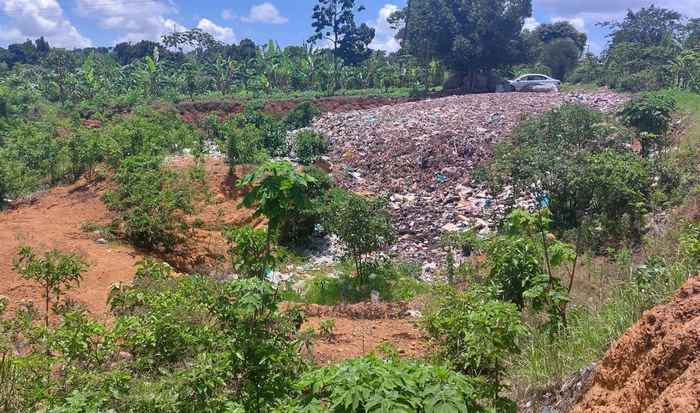
In the classroom
Alongside my research, I also taught lessons in primary schools about the ideas behind reuse, reduce, recycle.
Teaching was one of the highlights of my internship. I taught at five different schools, sometimes to more than one hundred pupils at once. I don’t really see myself as a teacher, but the pupils were very eager to learn about plastic waste. They listened closely, which made the lessons a great experience.
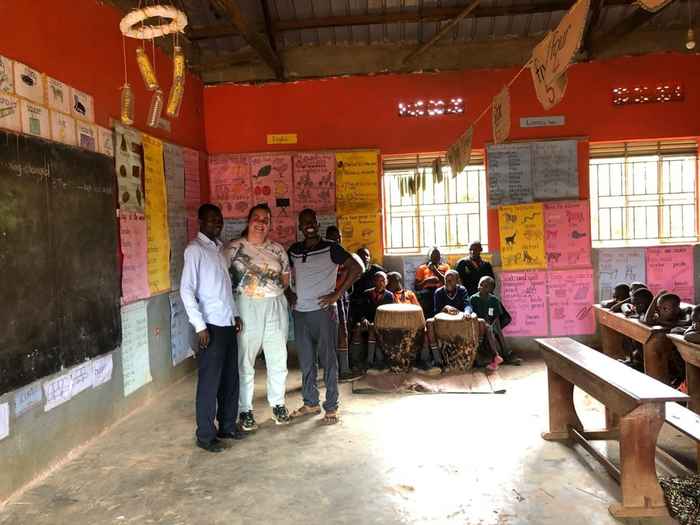
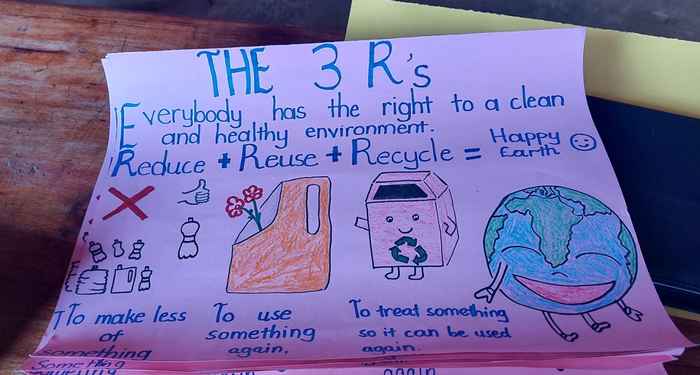
A different way of living
What I remember most is the very different way of life. The culture is very different there, and daily life often depends on things like the weather. Because of this, you never know exactly how your day will go. It was hard to let go of my usual structure and follow their rhythm, especially while doing research, but I learned a lot from it.
I mainly learned to relax more and not try to control everything.
Personal growth
Life in Uganda is slower. Learning to deal with such big cultural differences was very valuable for me, and I will take this lesson into my daily life and future career.
I also learned to speak confidently in front of large groups. This was not the plan at first, and I found it scary in the beginning, but it gave me a lot more confidence. Over time, I developed a “just give it a try” attitude, which now helps me step out of my comfort zone more easily.
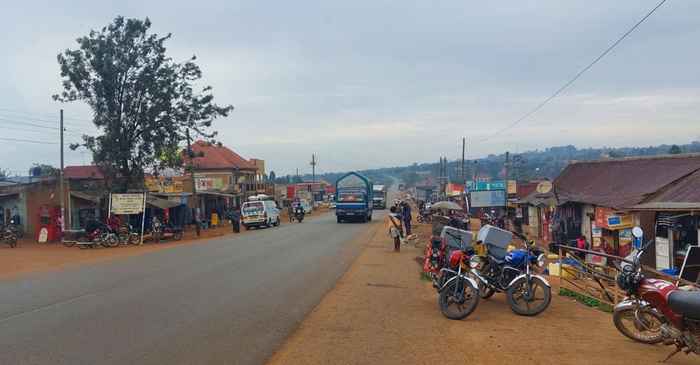
Challenges
The biggest challenge was the language barrier. Many people do not speak English, so I worked with interpreters who spoke both the local language and English. This helped us carry out the interviews, but it made deeper conversations difficult.
Another challenge was being on my own for a long time on a different continent, far from home. I often had to rely on myself, and this was mentally tough. Luckily, even with limited internet, I was able to contact home every other day.
A valuable experience
I would really recommend doing an internship abroad. You become much more independent, and it is great preparation for writing your final thesis. In my opinion, it could even be a compulsory part of the programme.
